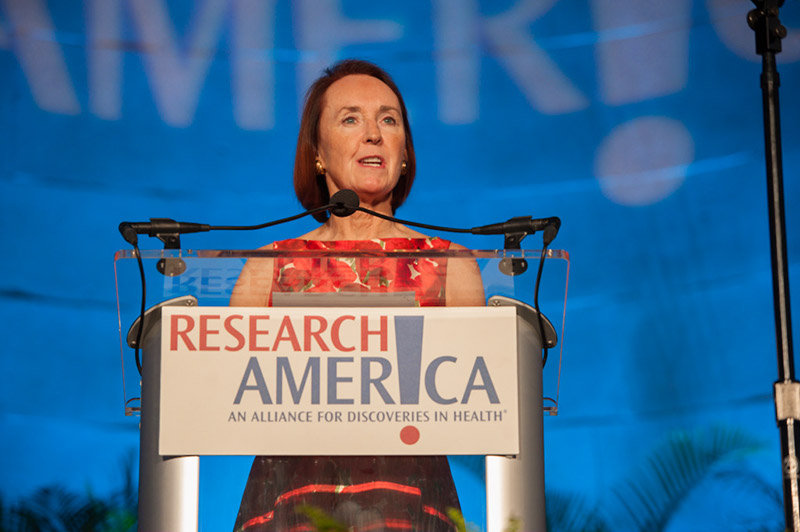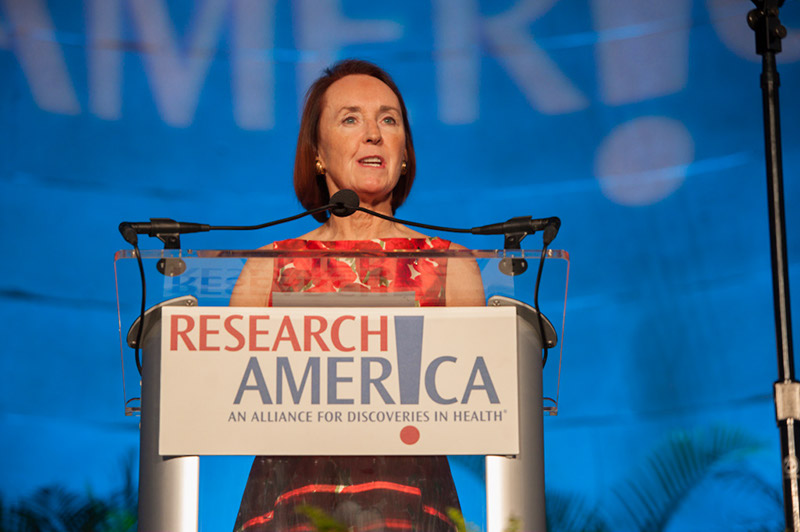Focus on the Future

 Dear Research Advocate:
Dear Research Advocate:
Dr. Kelvin Droegemeier, the Director of the White House Office of Science and Technology Policy, gave his first public address at the AAAS Annual Meeting last Friday. He discussed the importance of taking stock of the entire research and development enterprise, in order to provide a clear picture of U.S. capabilities in a global context that features other nations “nipping at our heels,” and then, drawing on this assessment — as well as the enduring values of our nation — to plan for the future in ways we haven’t seen since the Vannevar Bush report, The Endless Frontier, appeared after WWII. Droegemeier also emphasized the importance of strengthening partnerships across industry, academia, government, and the non-profit sector. When he spoke at the AAAS meeting,Tom Donohue, President and CEO of the U.S. Chamber of Commerce, also delivered a message about the importance of discovery and innovation — “without science there is no innovation, and without innovation there is no industry” — and stressed the enduring value the business community accords to science.
In her President’s address at AAAS, former FDA Commissioner Peggy Hamburg, MD, referenced “Truth Decay”, the first in a series from the Rand Corporation, exploring why people can’t seem to agree on the facts before starting to debate policy, and suggesting how to combat this phenomenon. “Encountering Science in America”, a new report just released by the American Academy of Arts and Sciences provides some clues to regaining trust in the facts by showing different ways science information is consumed by the general public. How will scientific research be conducted in 10 years? A study by Elsevier/Ipsos MORI released and discussed at AAAS, posits three different, provocative scenarios: Brave Open World, Tech Titans and Eastern Ascendance. All of these reports are worth a read.
With funding for Fiscal Year 2019 (FY19) finally complete, discussions of FY20 have begun in earnest. Having just weathered initially unforeseen, and then long and deleterious delays in critical science funding, the advocacy community can take nothing for granted going forward.
As you know, the most significant threat jeopardizing NIH, NSF, and other crucial science agencies right now is the return of the sequestration budget caps for FY20 and FY21. According to recent reports we’ve heard, it is likely the President’s budget will request the caps be raised only for defense programs. Though the President’s budget is just a request (the Constitution gives Congress the power of the purse), it sends a message about the priorities of the White House and often establishes the baseline levels – in this case low ones – appropriators consider when they allocate funding to various agencies and programs.
It is up to us to make the case for a caps deal which takes into account the value of science as not only a major contributor to defense, but as a driver of the economy, better health and global competitiveness. If you haven’t already done so, please contact Donna ([email protected]) to join us in a major advertising and advocacy campaign to “Raise the Caps.”
The NIH clinical trial portal, clinicaltrials.gov, has launched a survey to improve its website so researchers, patients and providers (in other words, all of us!) can more clearly understand trial descriptions and availability as well as enabling researchers in both the public and private sectors to more easily access and share information. Please take a few minutes to weigh in with your perspectives.
Registration is open for our 2019 Annual Meeting and Advocacy Awards Dinner, both on March 13. We hope you will be with us to hear from and honor truly remarkable champions for research.
Please join our next alliance member call on Thursday, February 28 at 1:00 p.m. EST, when American Public Health Association (APHA) President and Research!America Board Member, Georges Benjamin, MD, will join us to discuss vaccines and other public health issues, the need to raise the caps, and FY20 appropriations goals. For details or to join the meeting, email Jacqueline Lagoy ([email protected]).
Sincerely,
Mary Woolley




